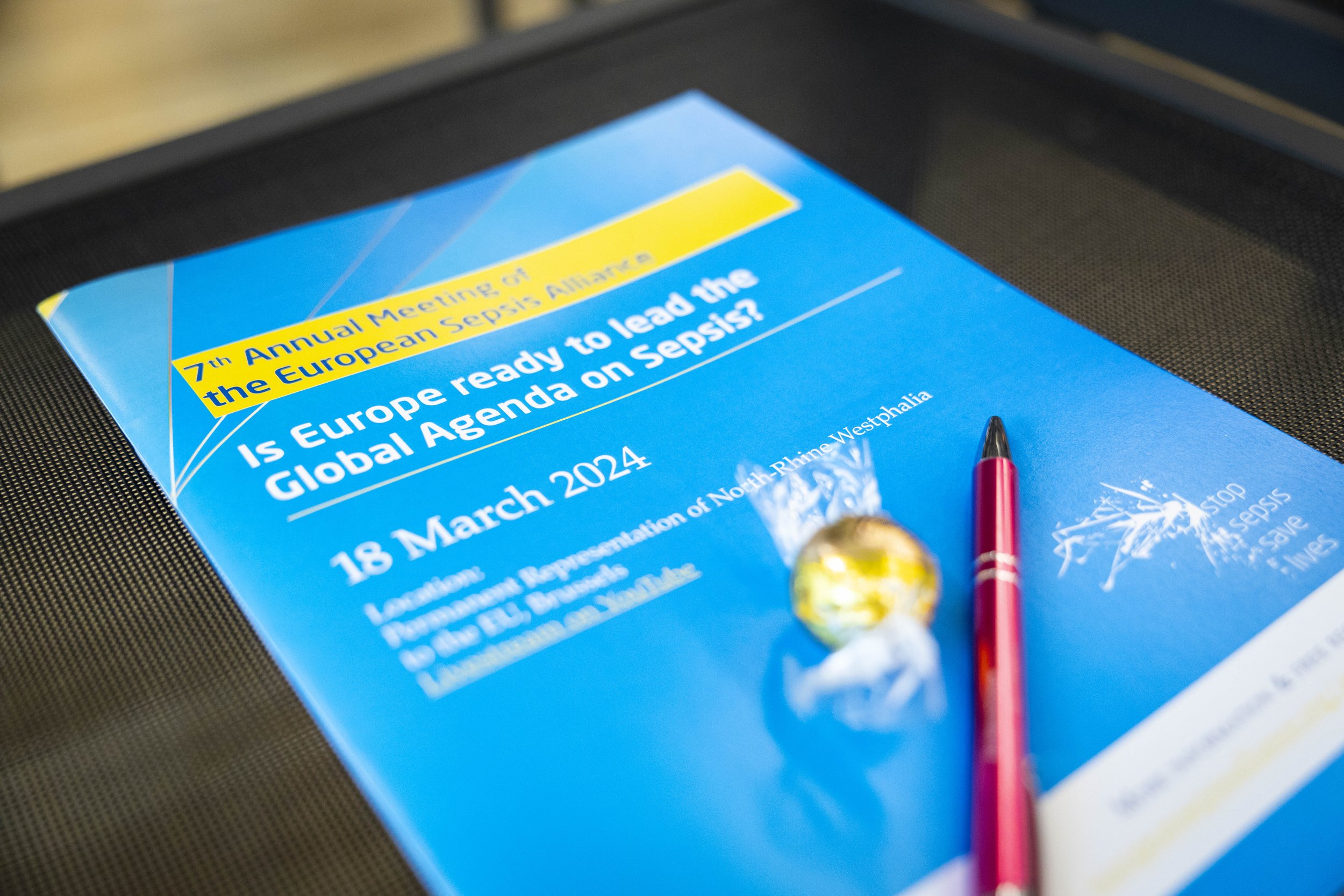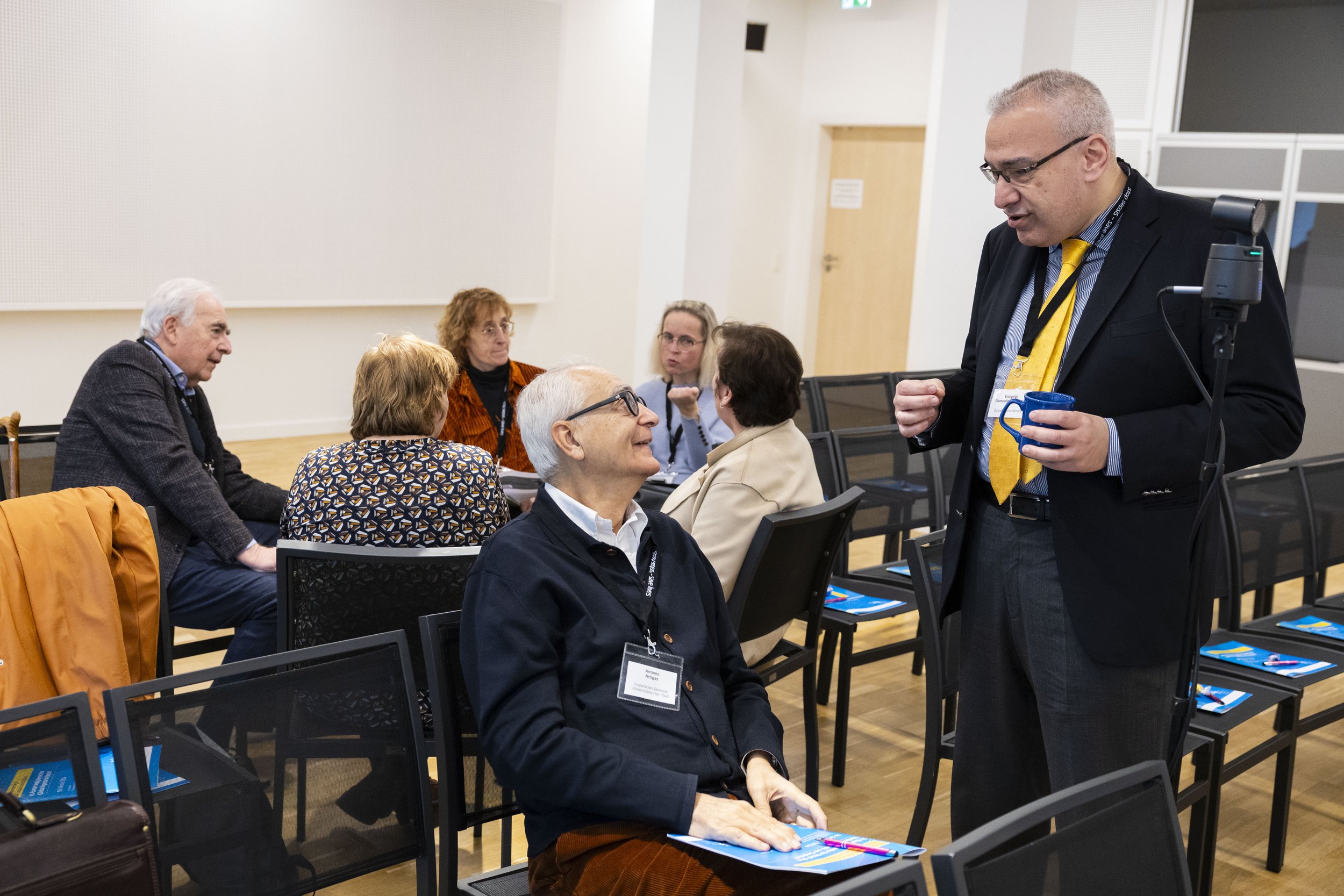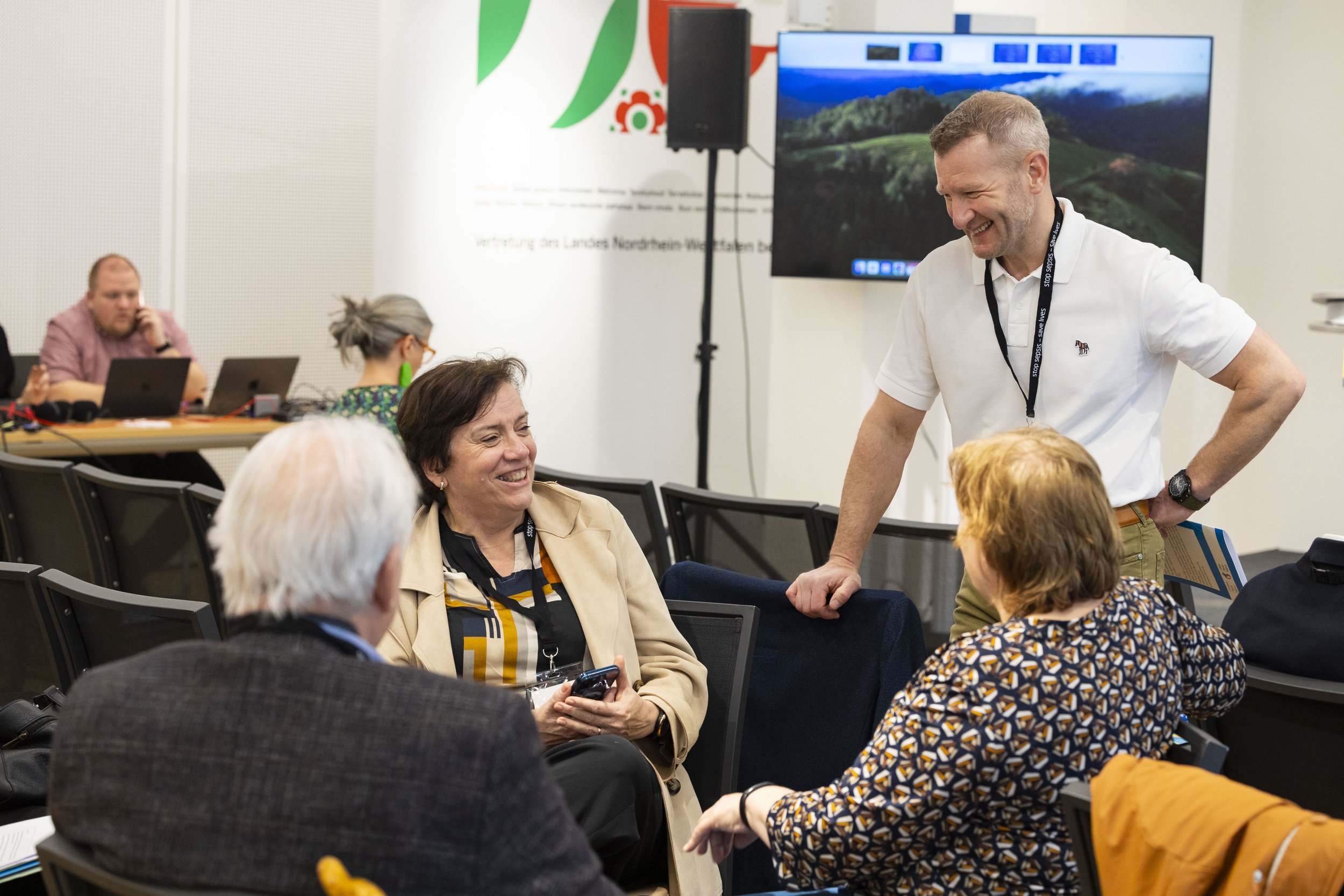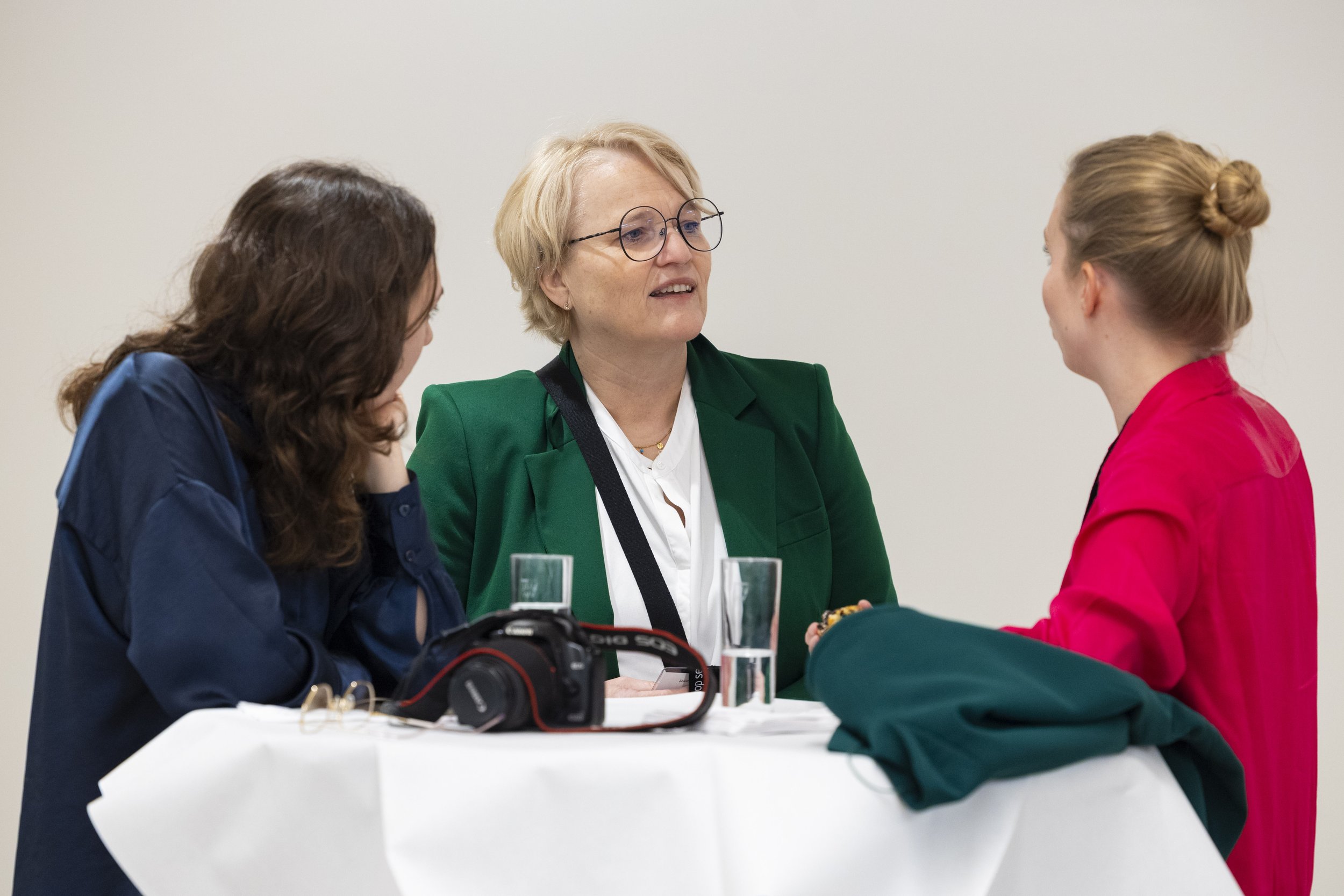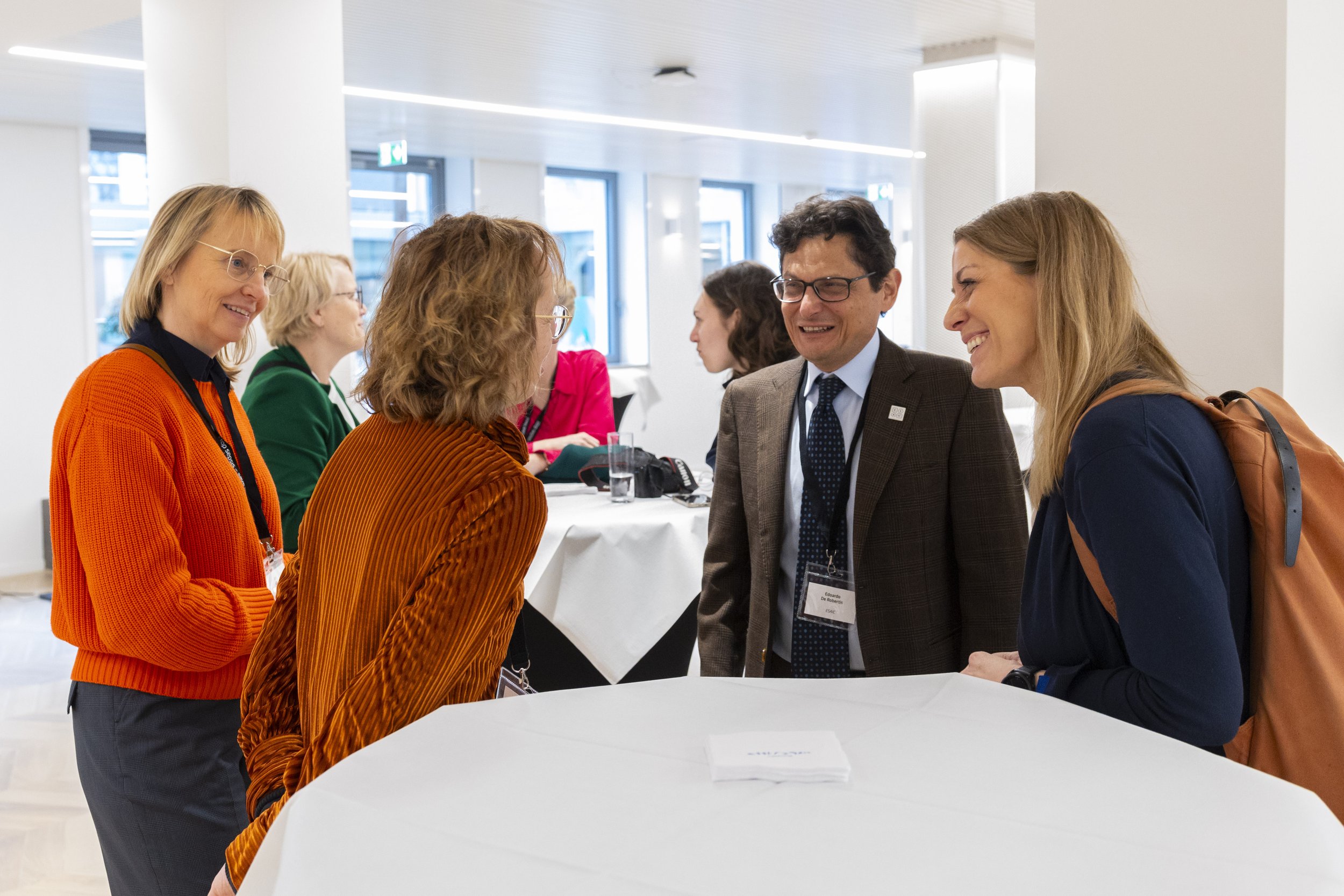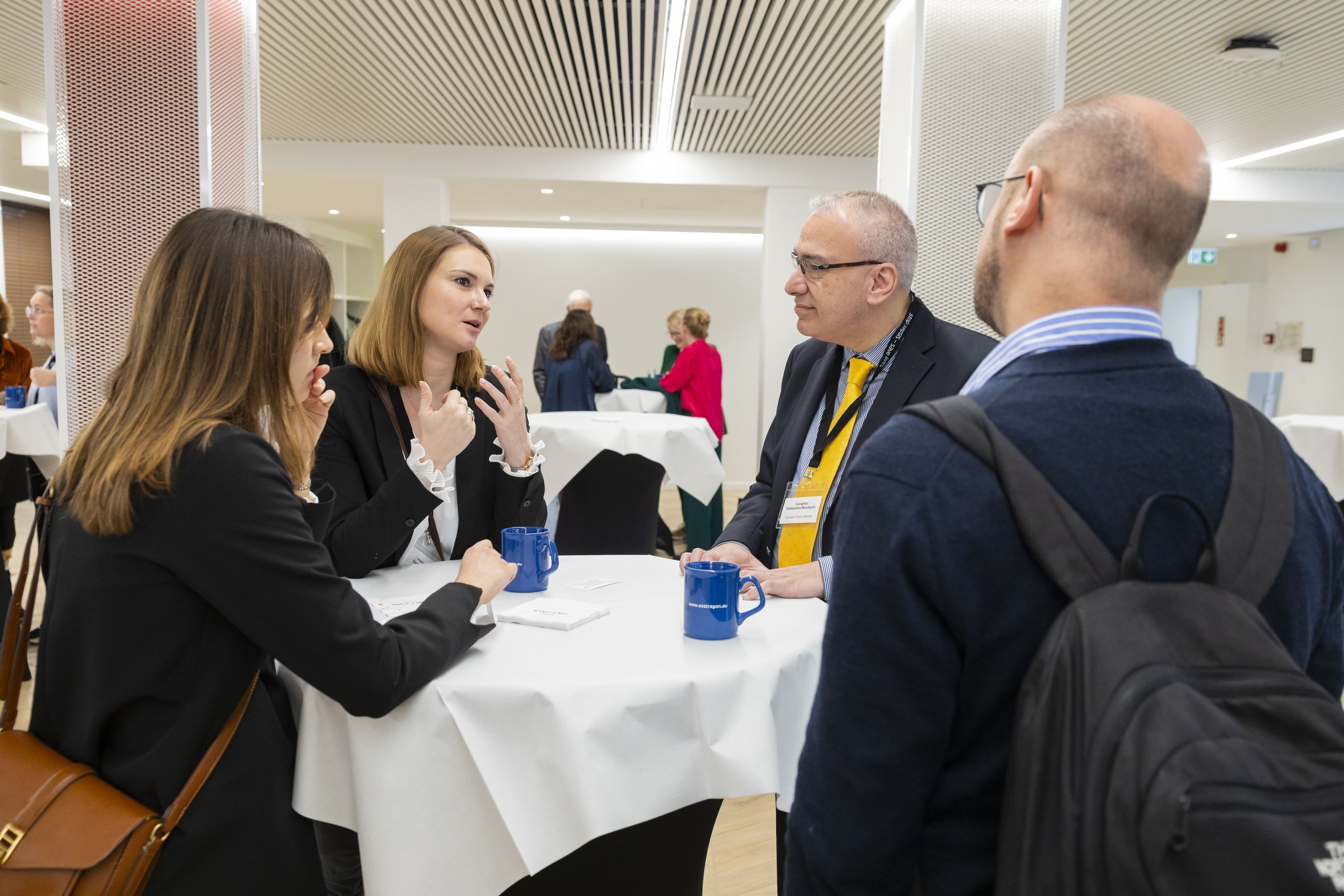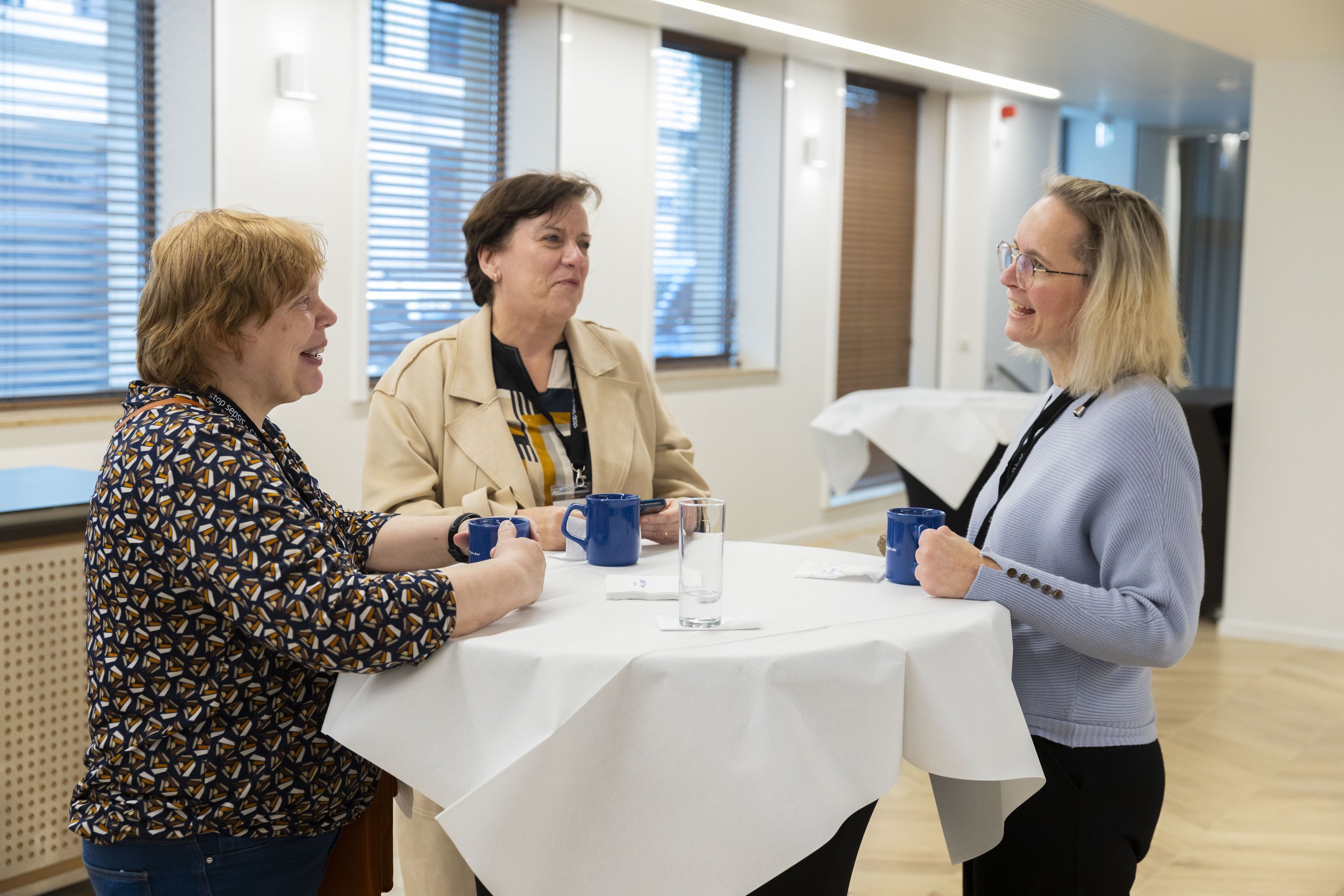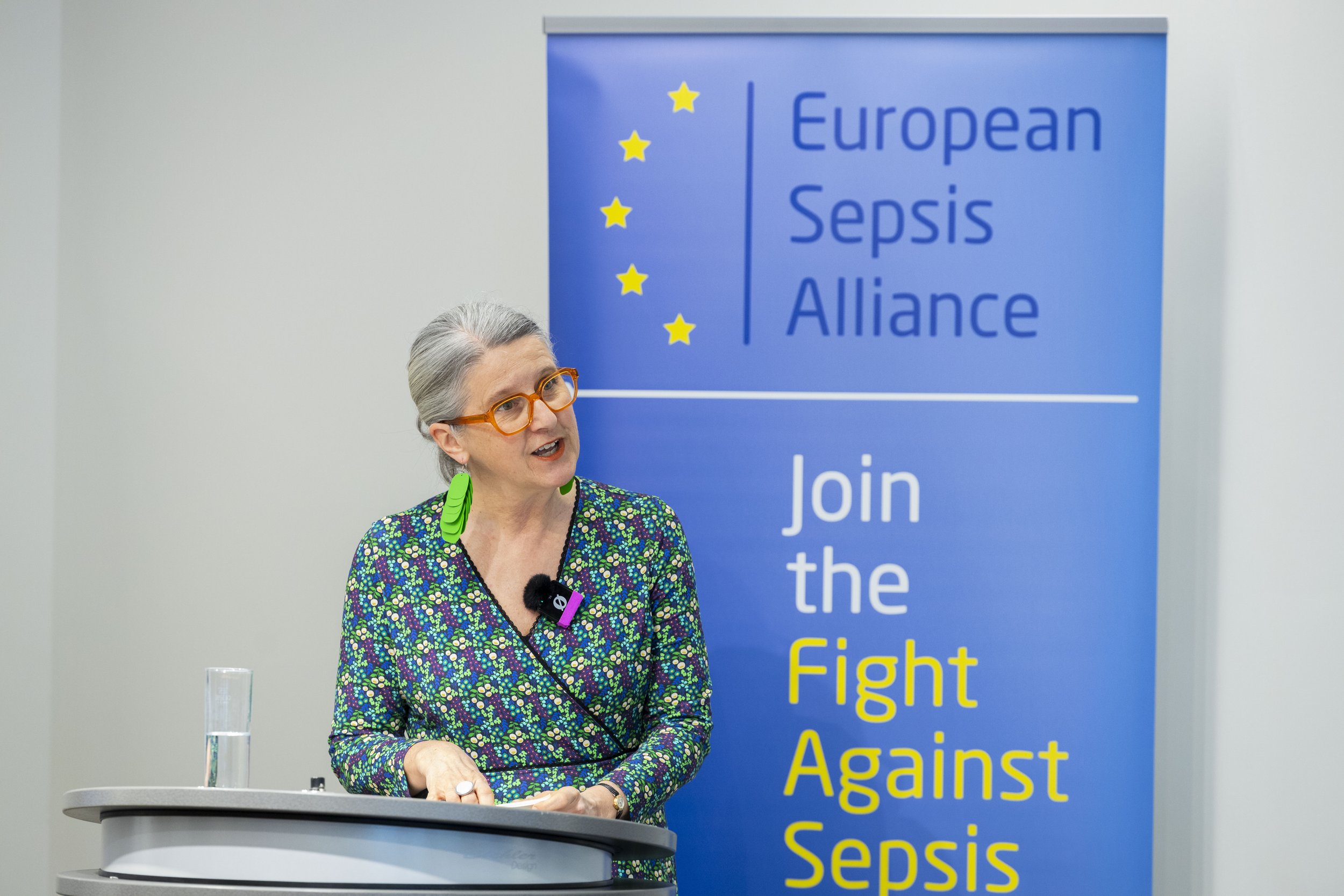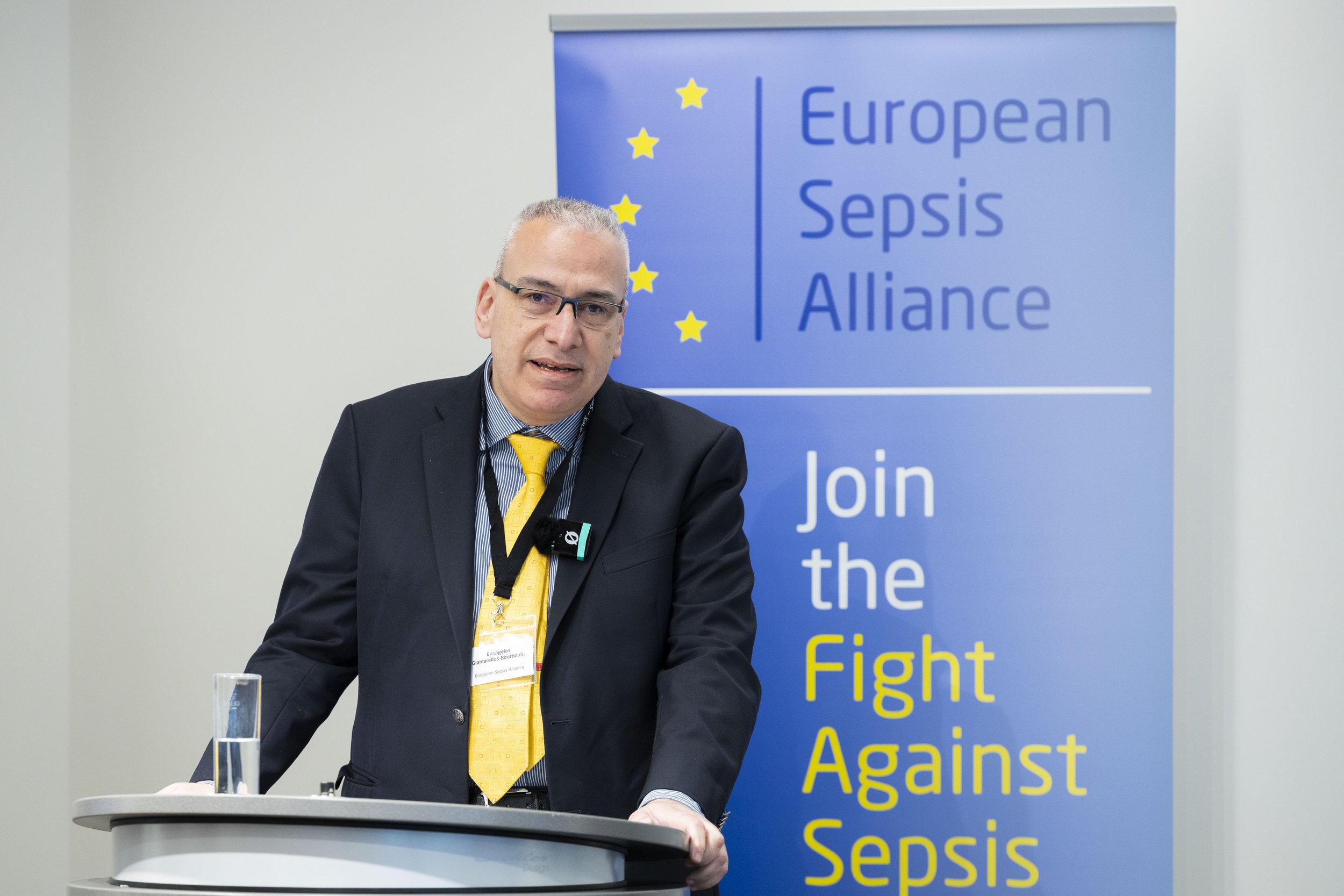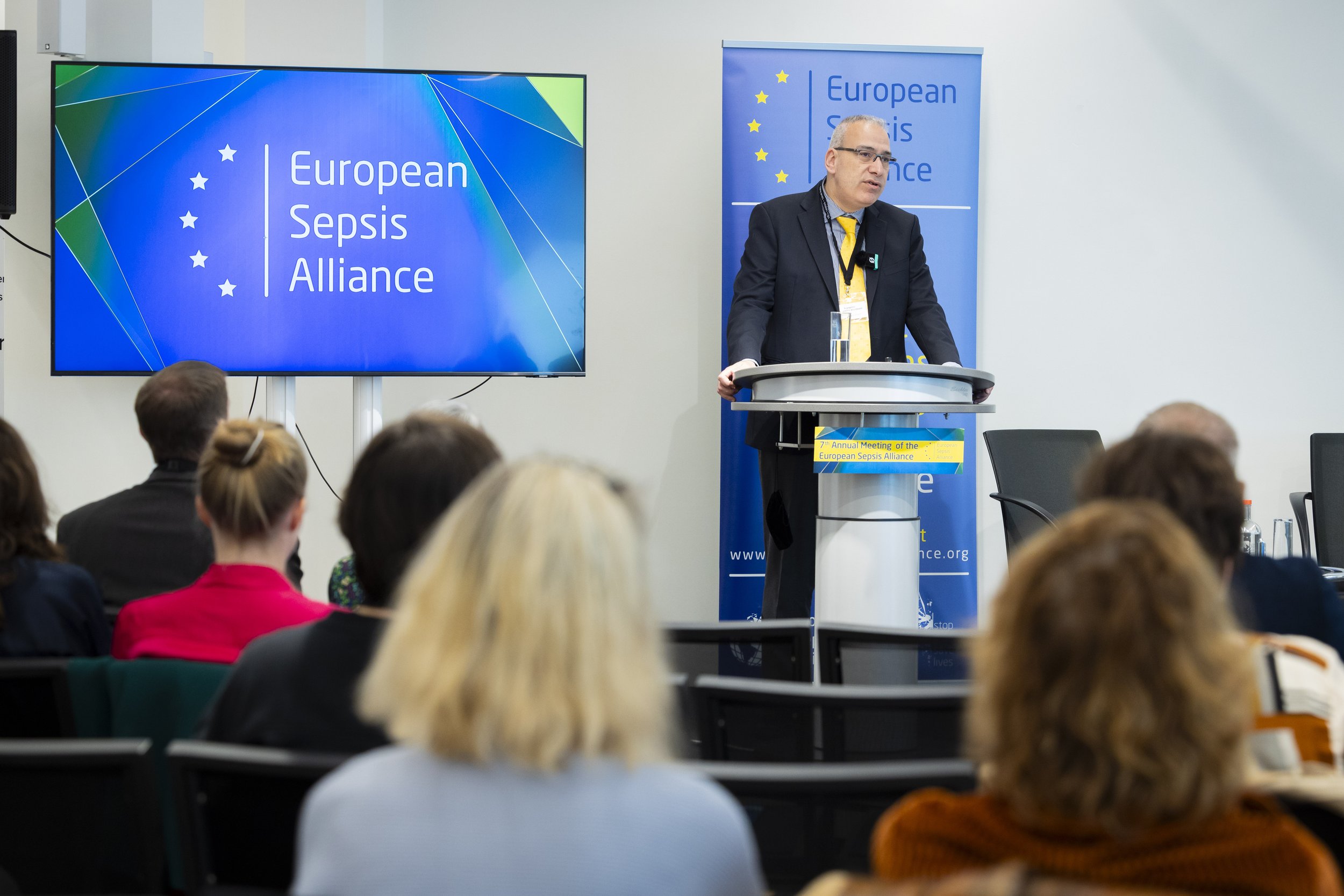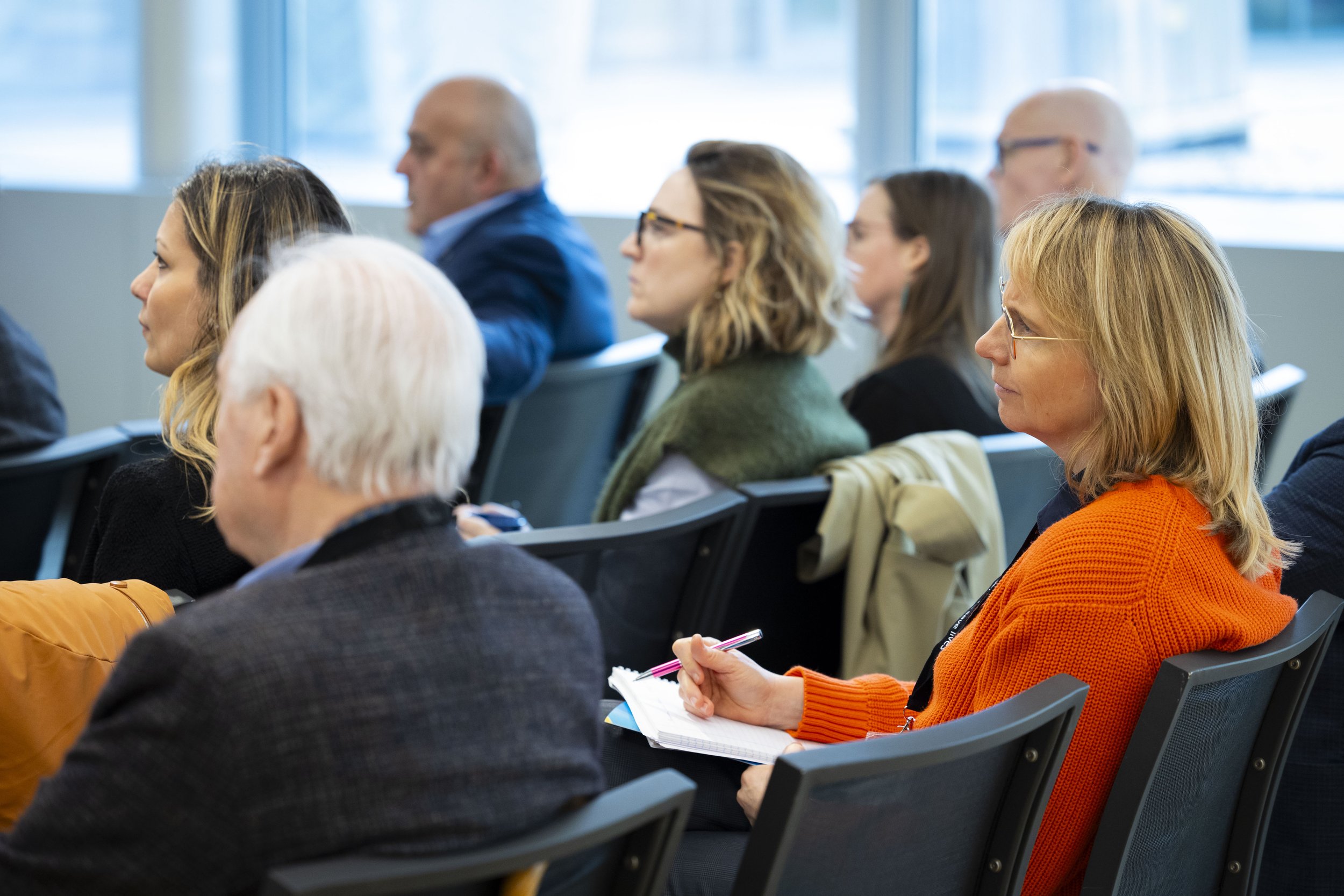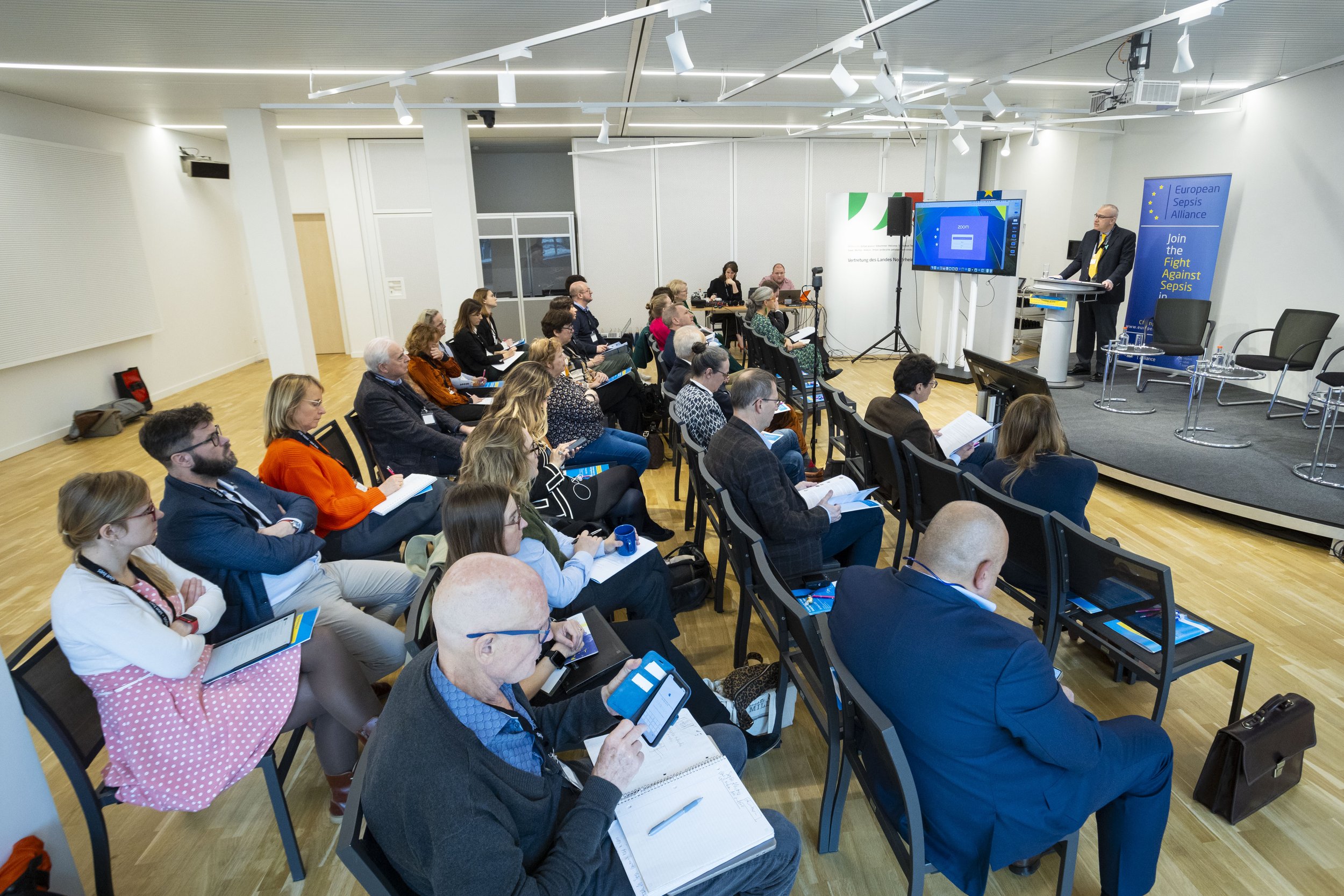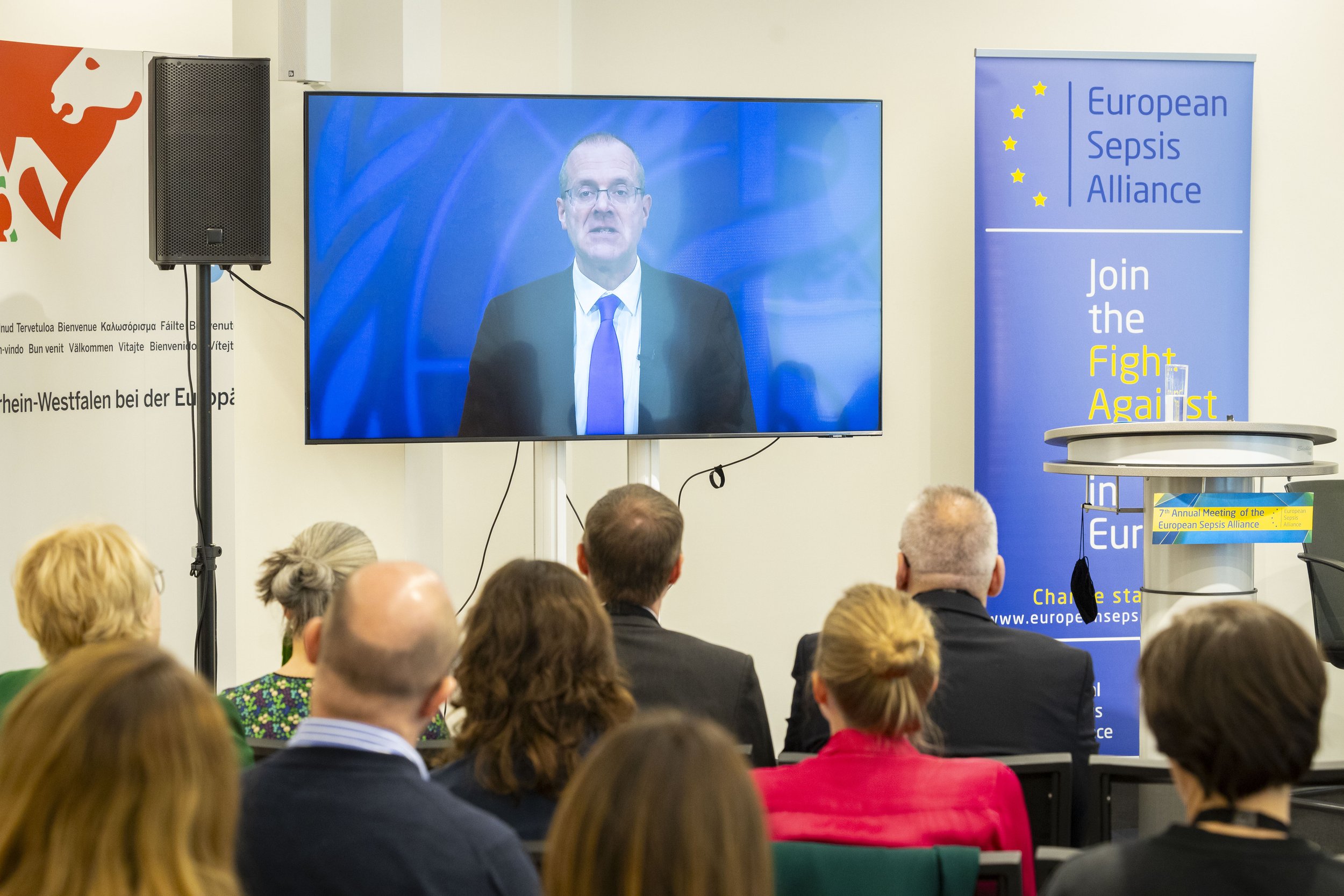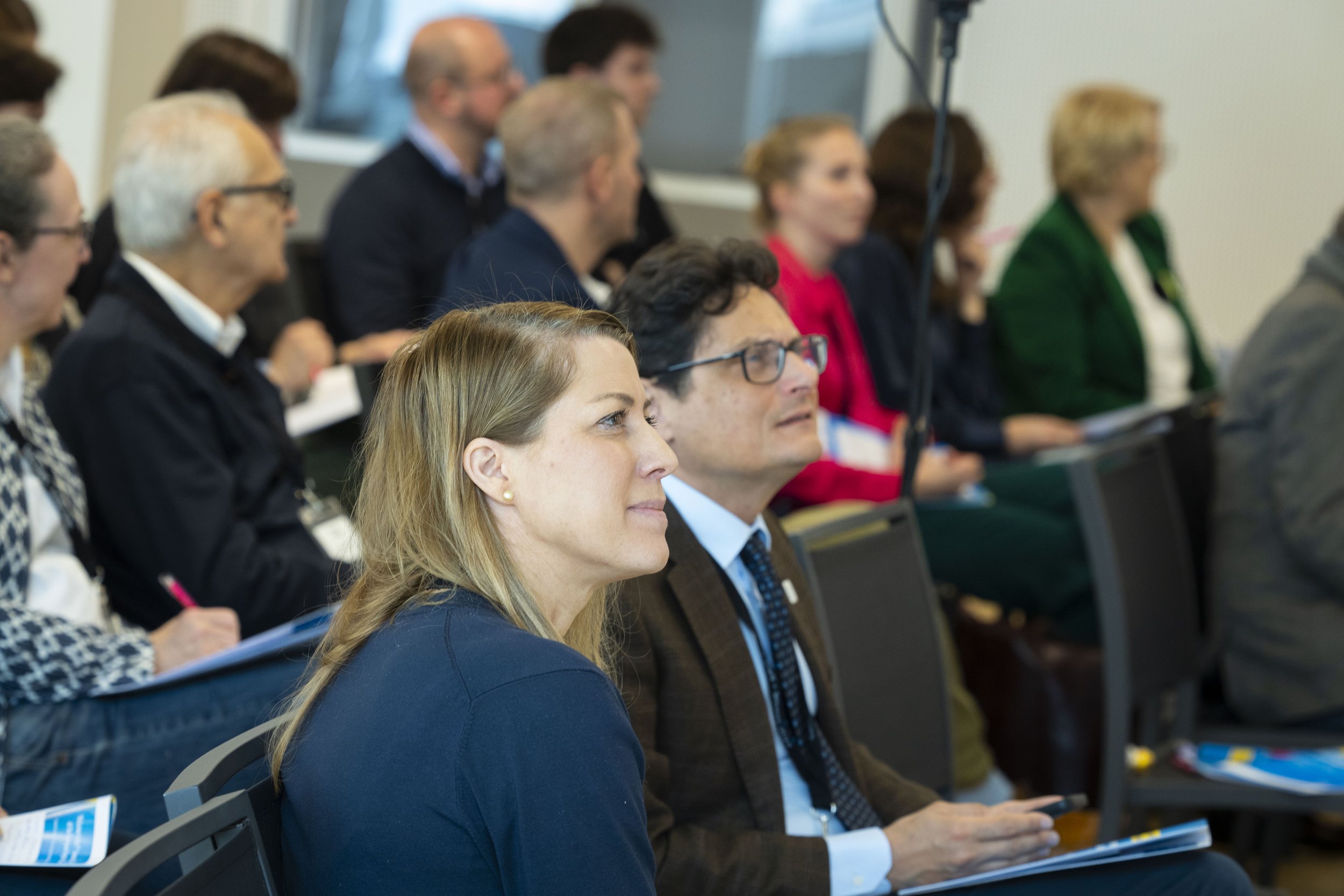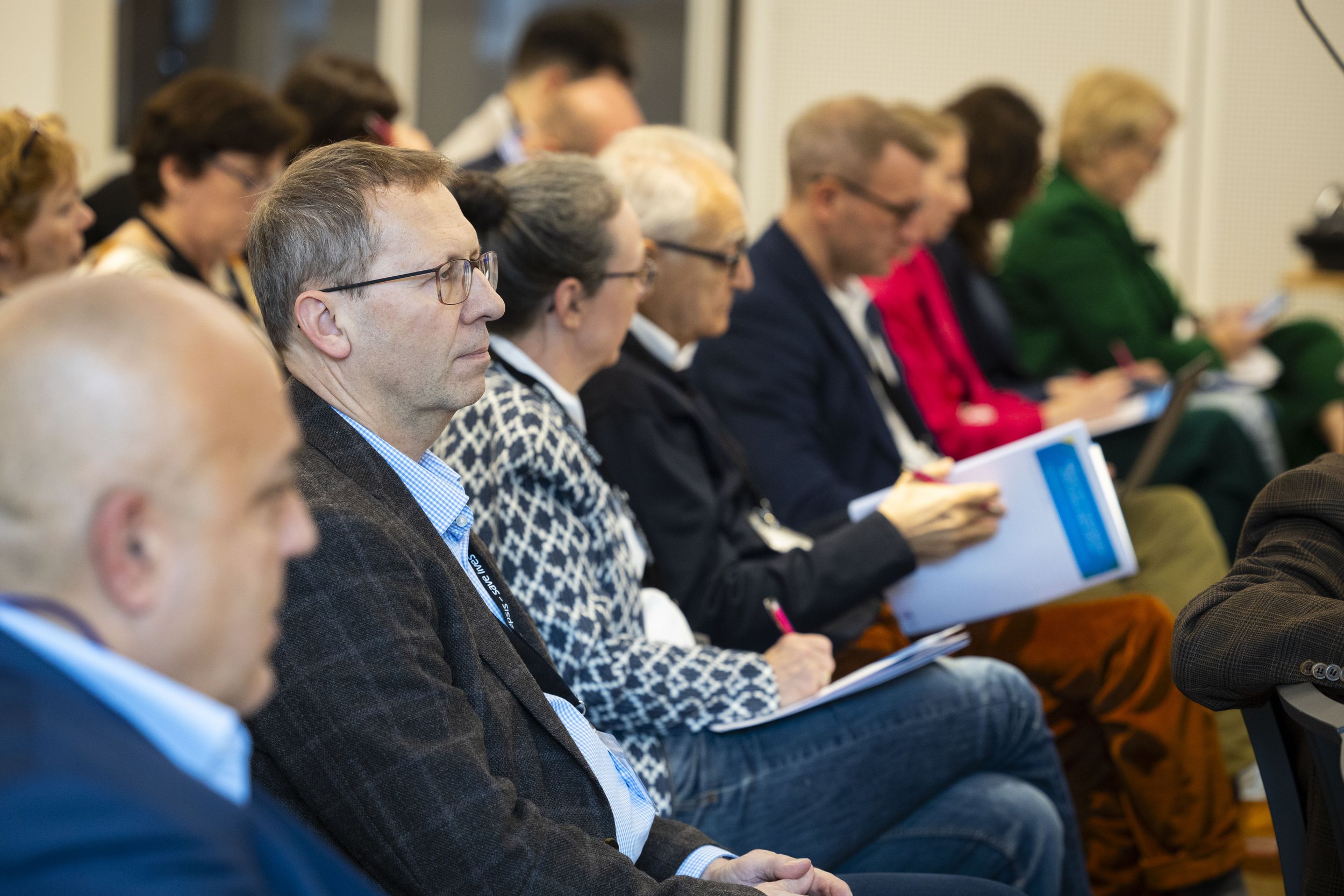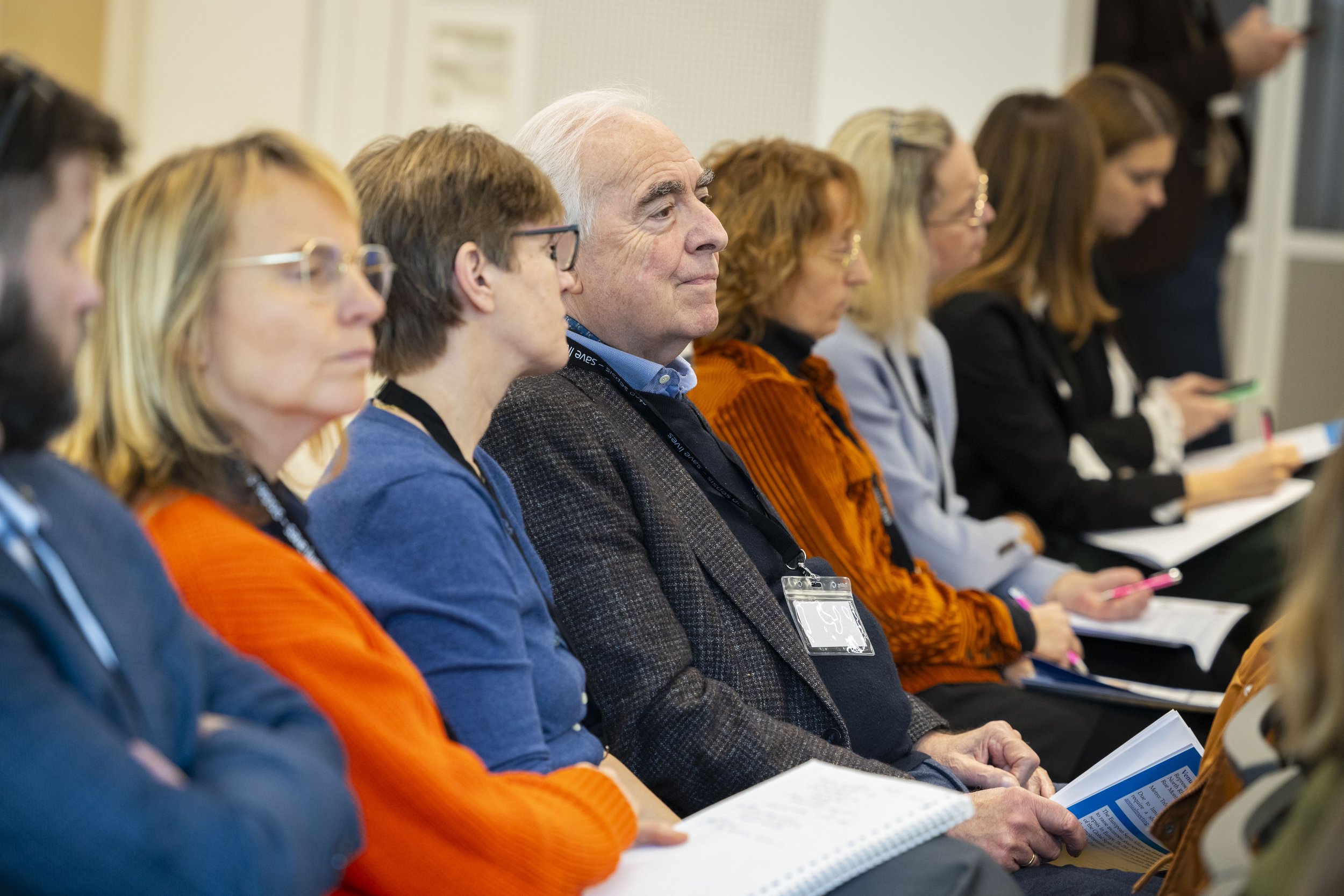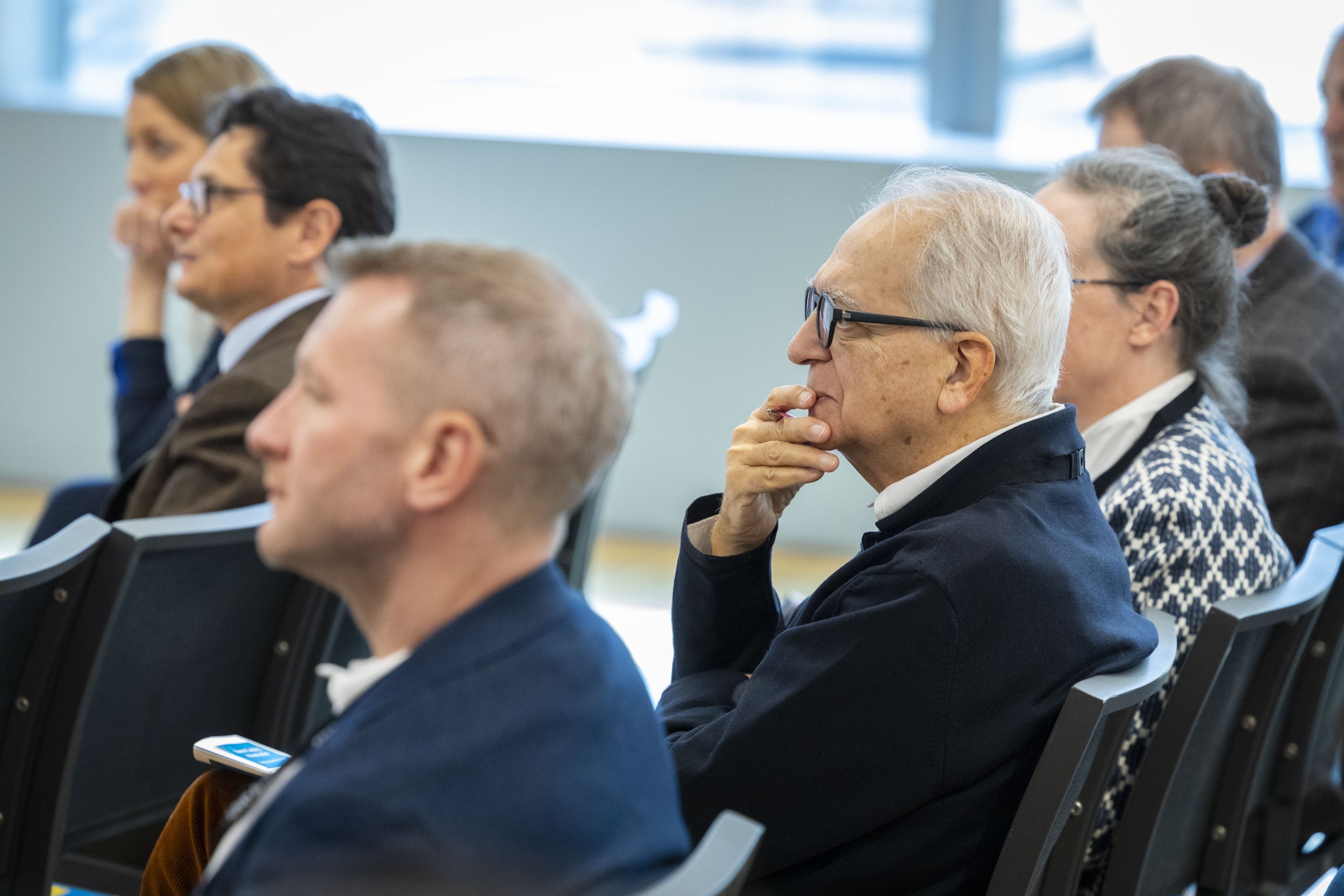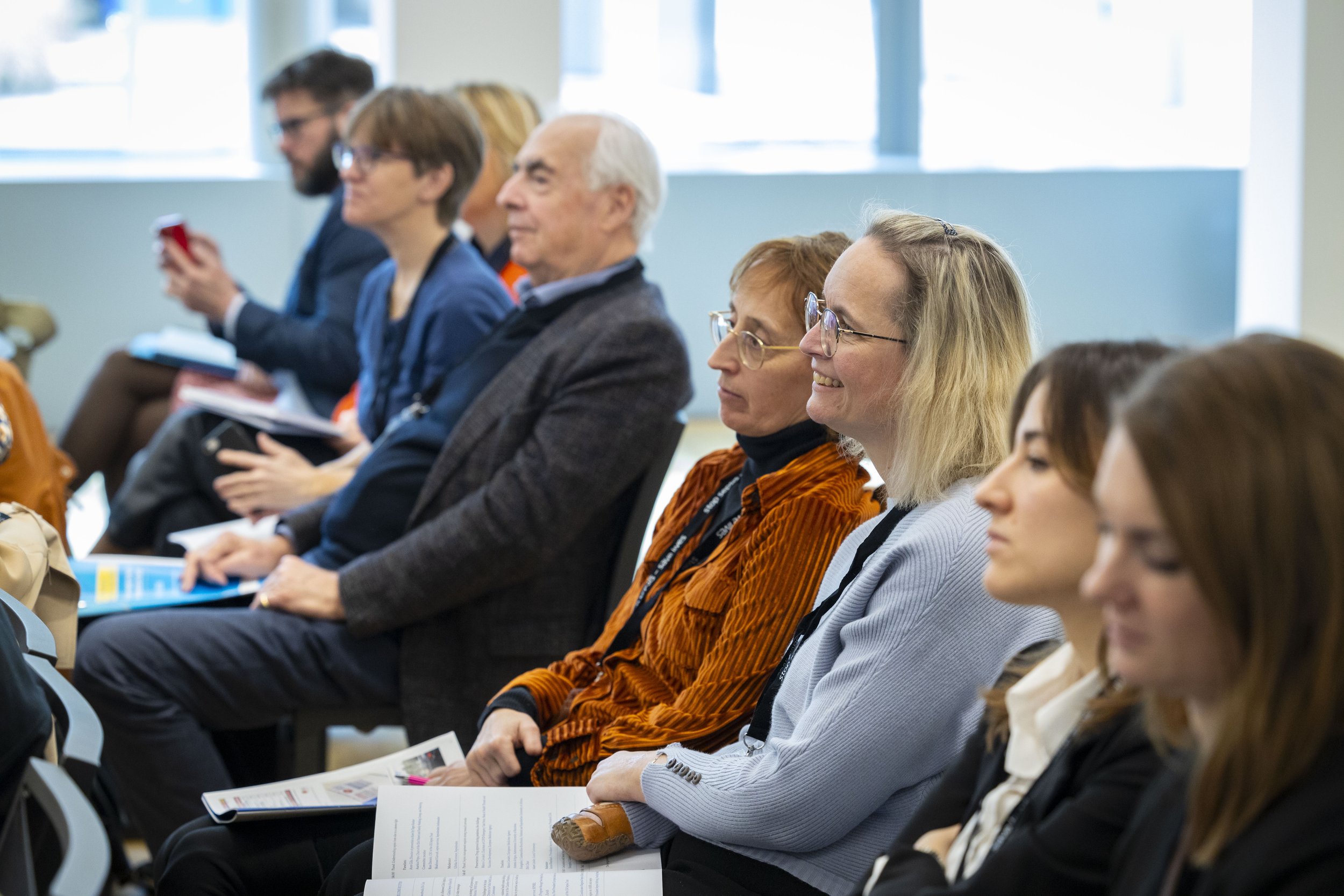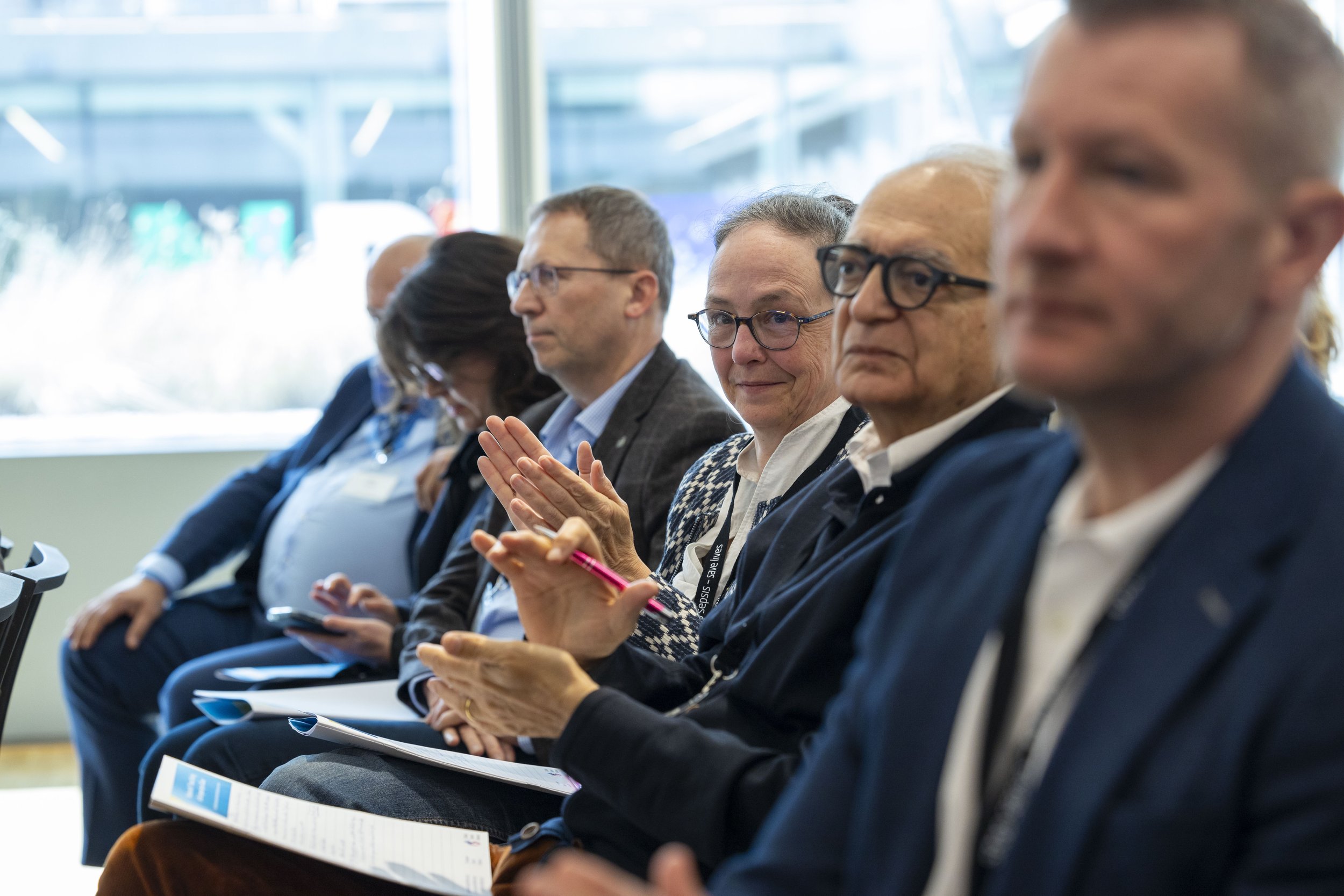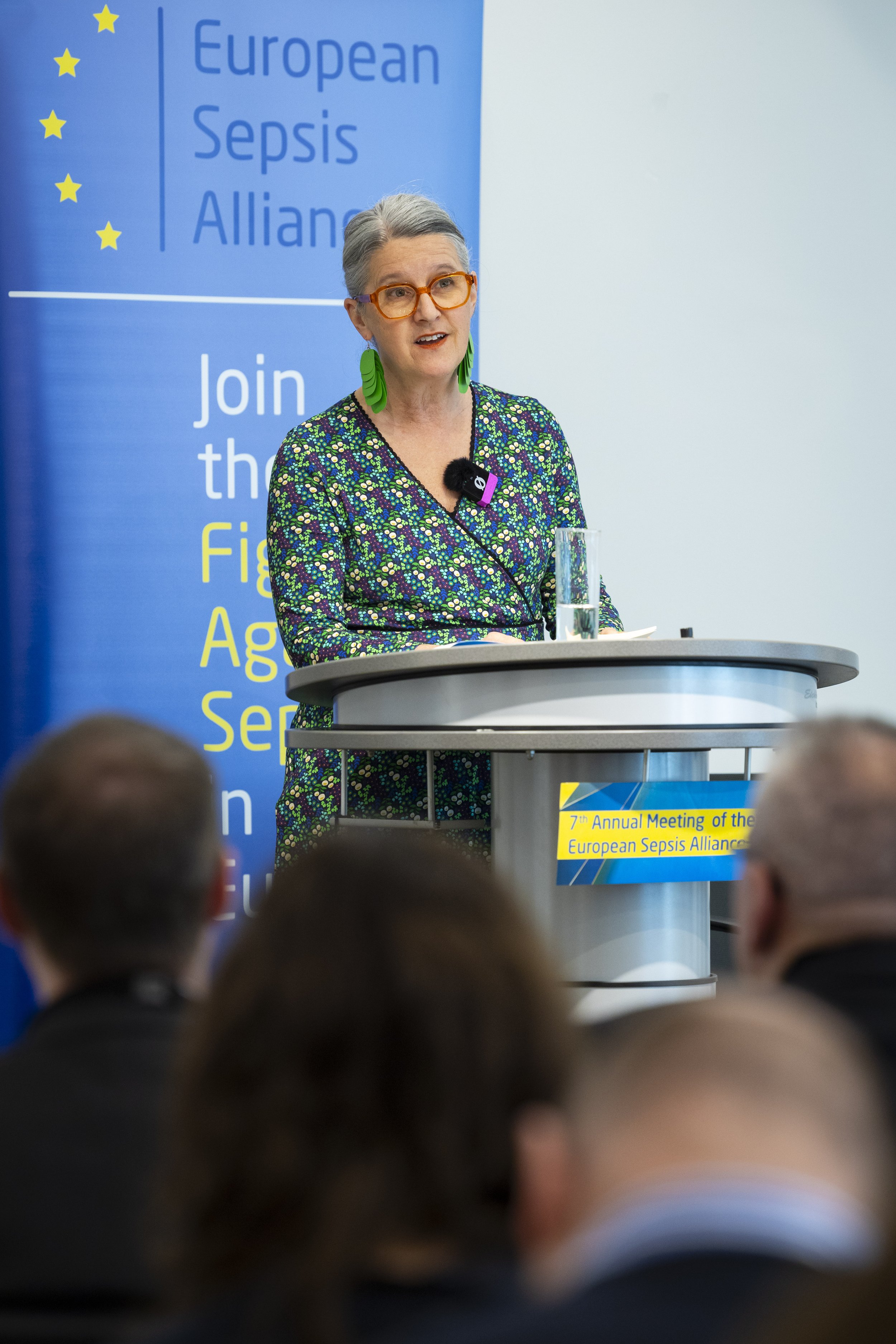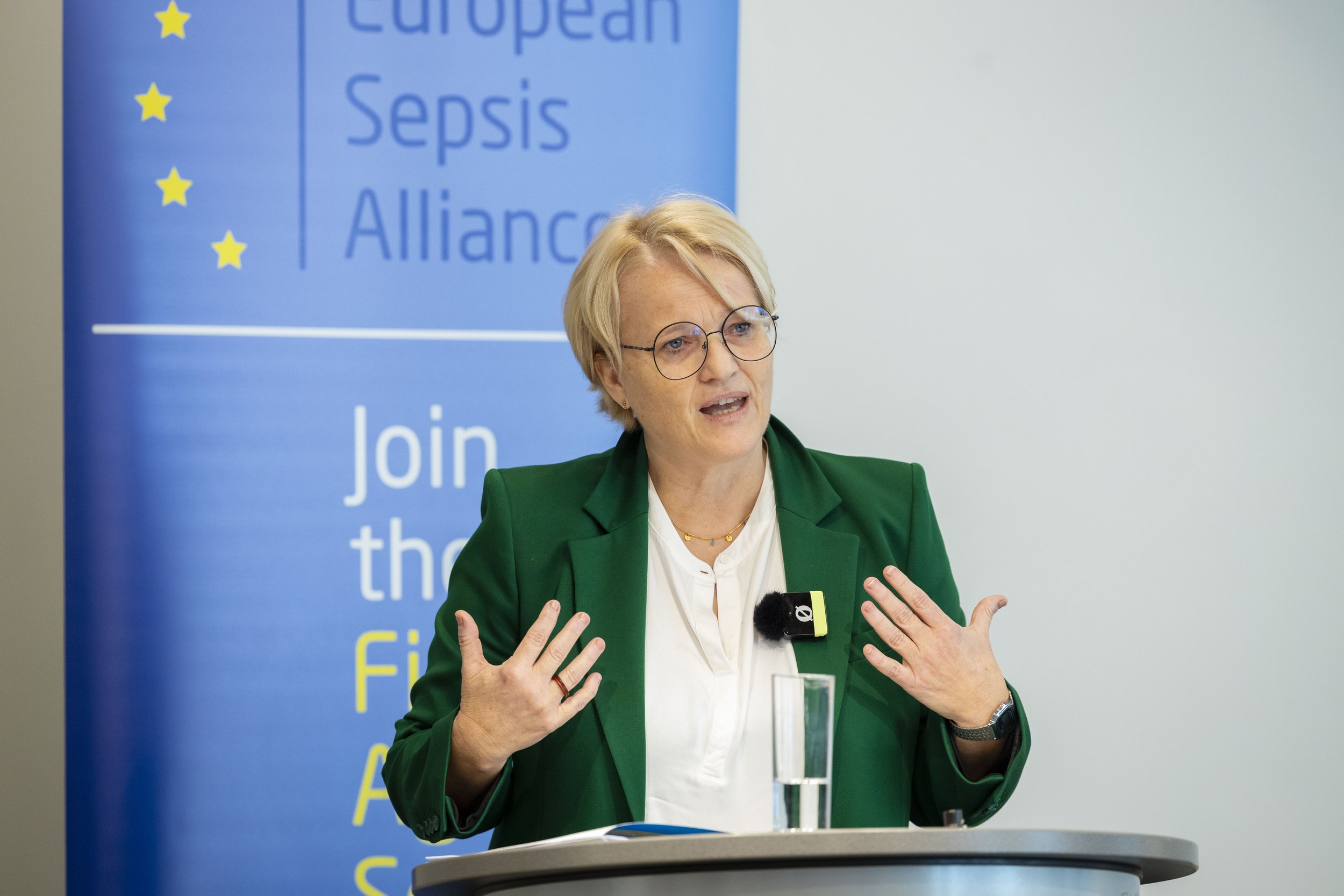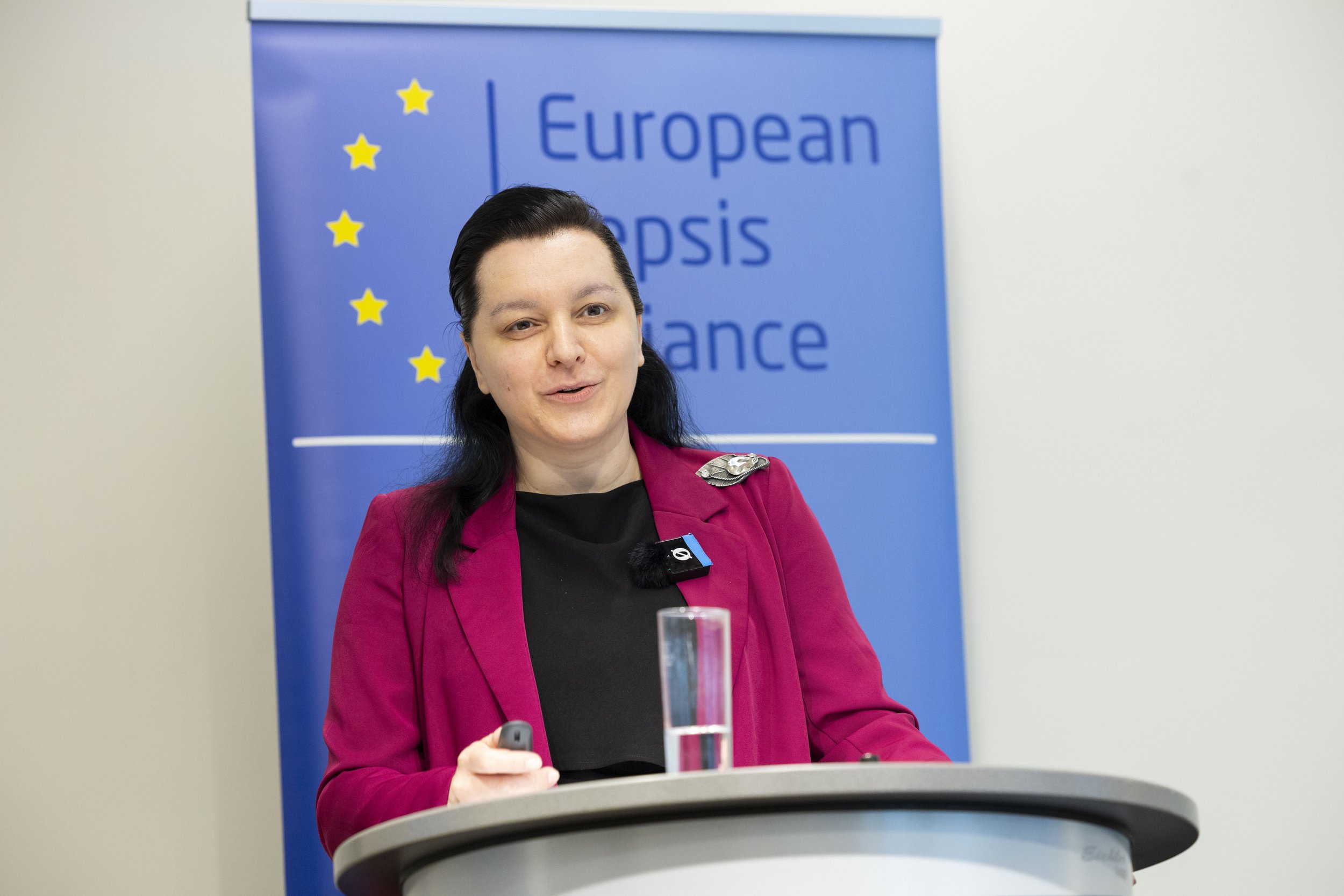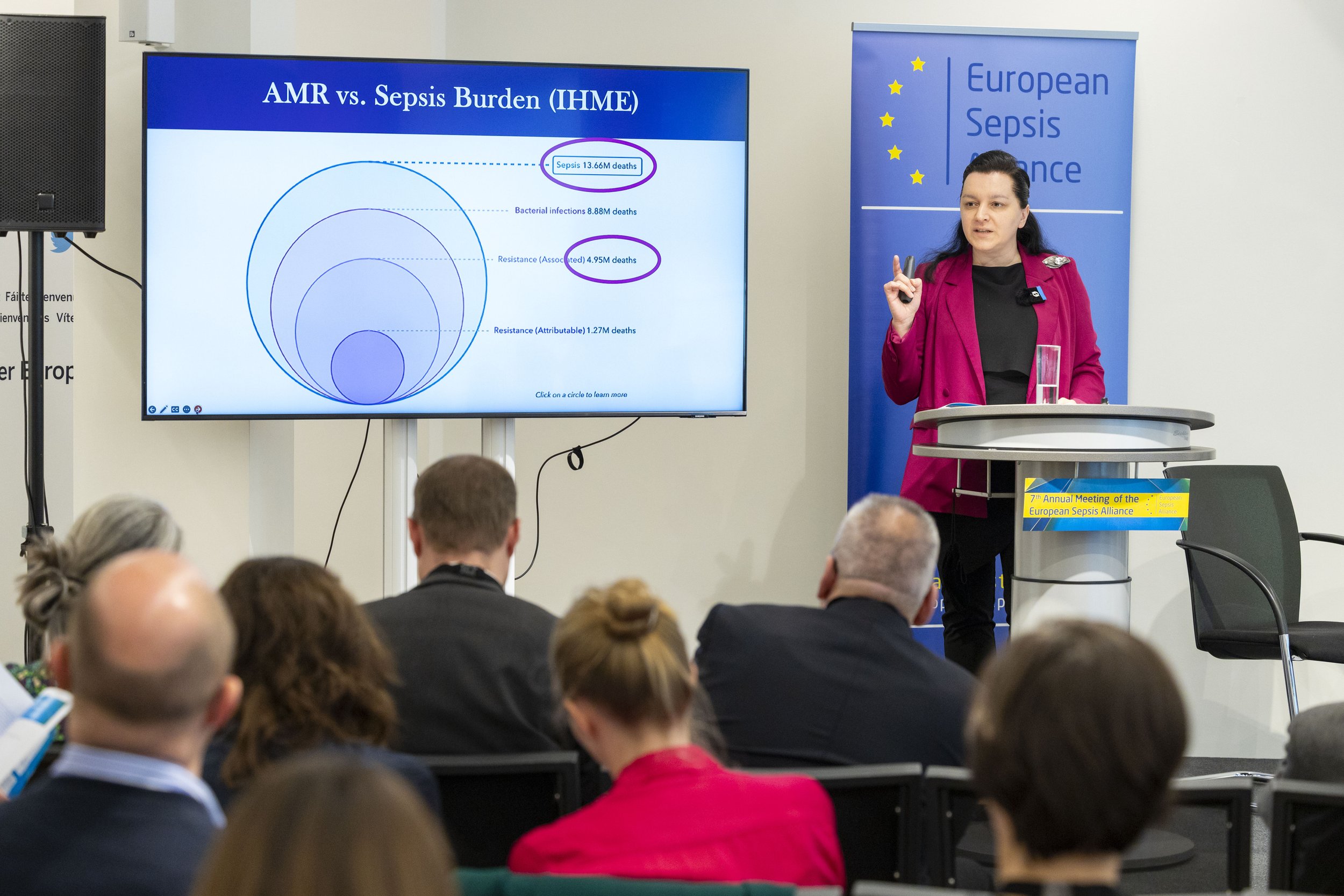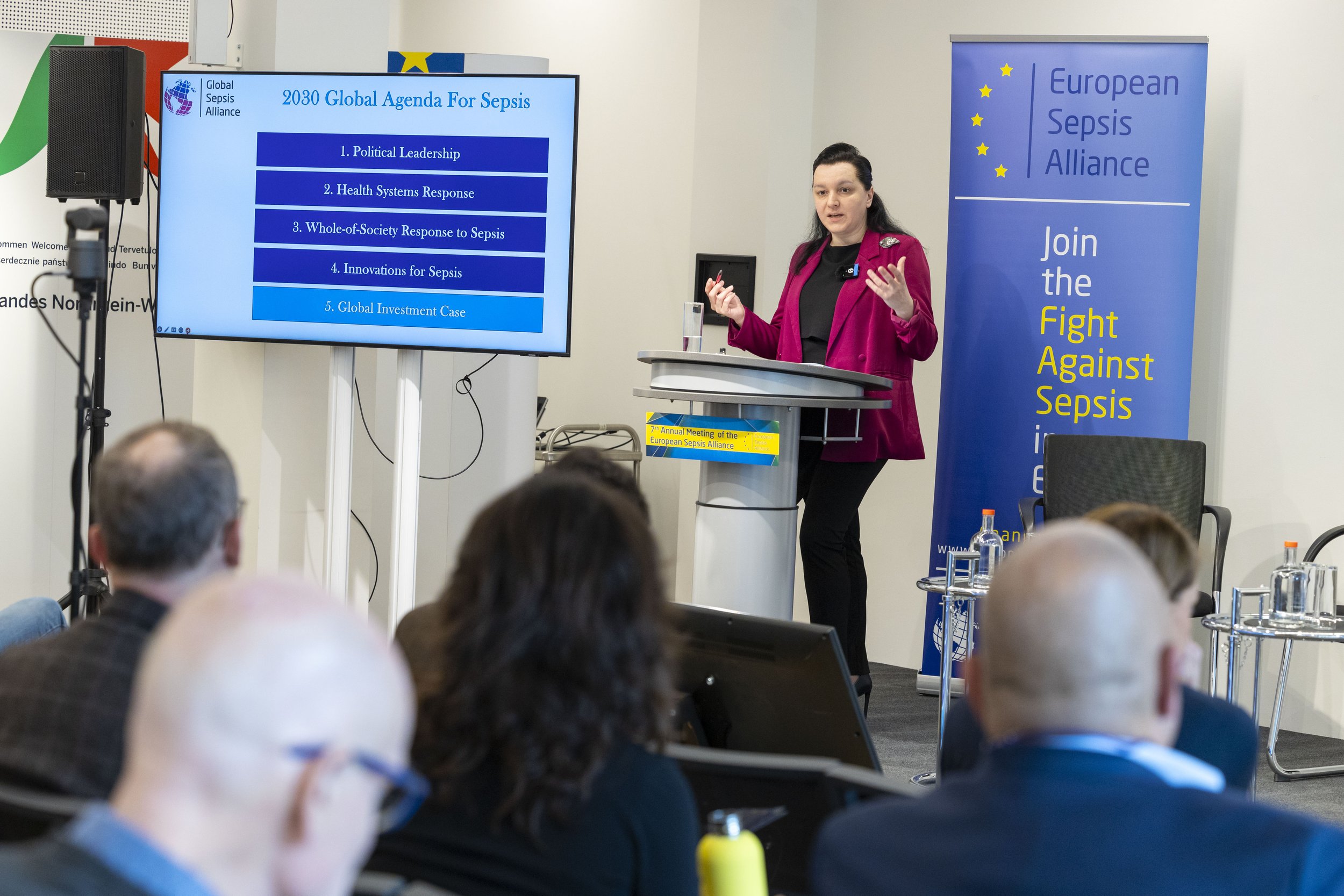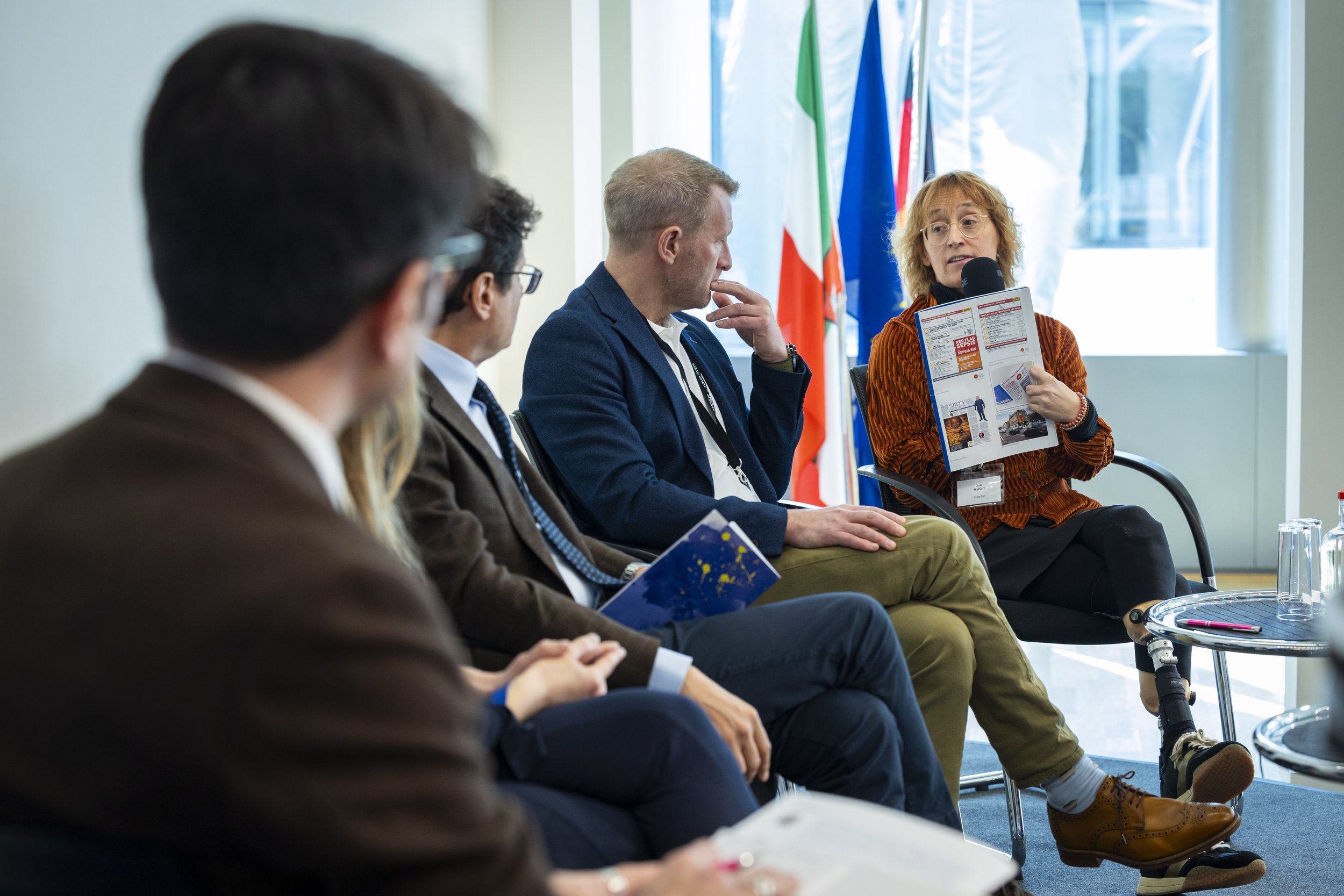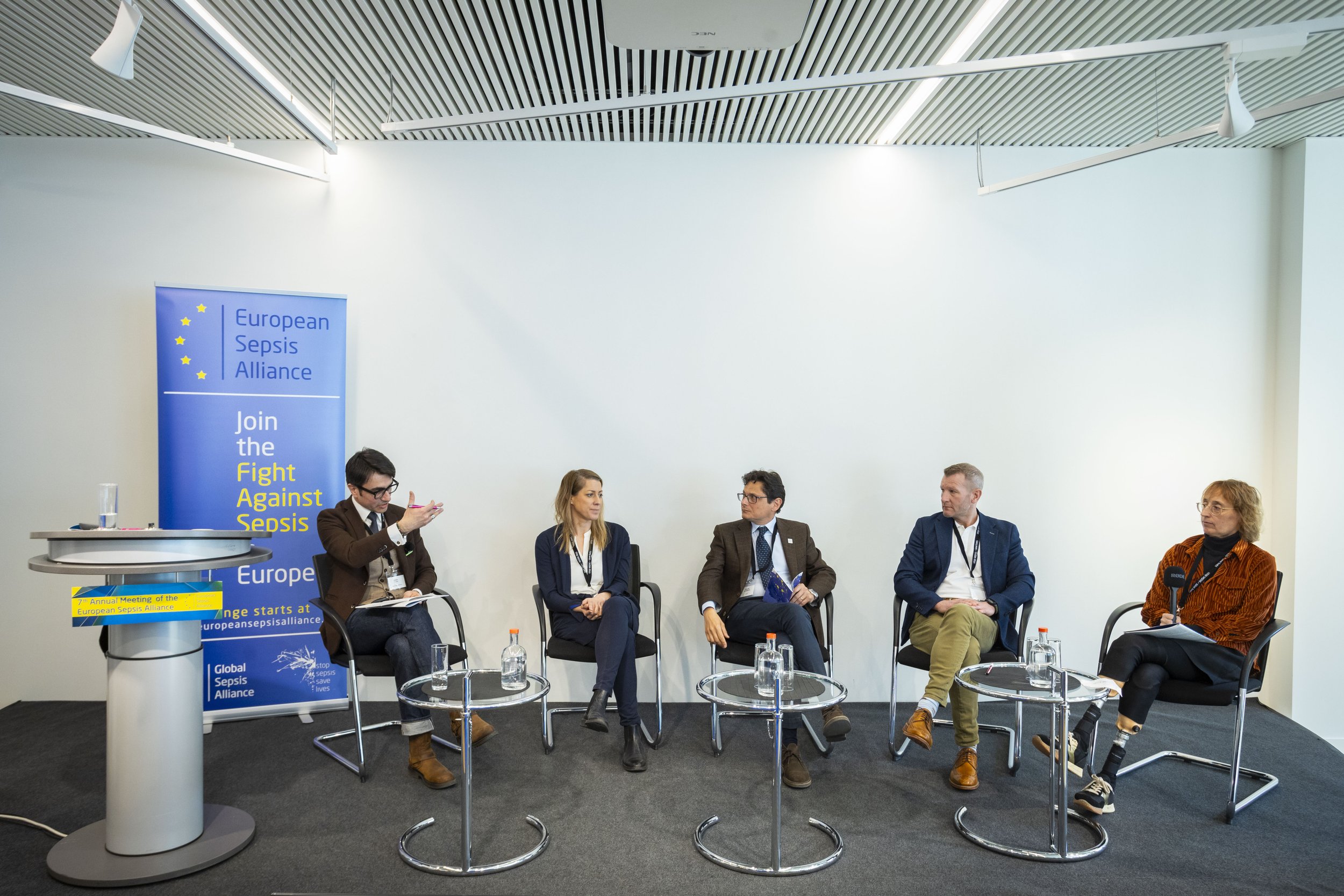7th ESA Annual Meeting Report: A Call for Europe's Leadership on Tackling Sepsis
Hans Kluge, Regional Director, WHO Europe
“Europe is uniquely positioned to spearhead efforts against sepsis. Leveraging cutting-edge research, fostering international collaboration, and advocating for comprehensive health policies, we can catalyze significant progress in sepsis prevention, diagnosis, and treatment”. With this strong message, WHO Regional Director for Europe, Hans Kluge opened the 7th Annual Meeting of the European Sepsis Alliance, reiterating the continued support of WHO and calling on European leaders to join the fight against sepsis.
Prof. Evangelos Giamarellos-Bourboulis, ESA Chair
ESA Annual Meetings are unique opportunities to take stock of the progress of sepsis policy, research, and advocacy. We are proud and honoured to have assembled such a distinct panel of speakers, each bringing their unique perspective, contributing to describing the current situation of sepsis care in Europe.
Philippe Roux confirmed the indirect contribution of EU policies through the ongoing focus on reducing the burden of antimicrobial resistance (AMR). The recently approved European Council recommendations on AMR, besides encouraging education on sepsis, will entail European guidelines on infection prevention and control and on antimicrobial stewardship for the treatment of major infections, to the development of which ESA has indicated its interest and availability. Furthermore, the Horizon Europe program has already provided a total of €35 million support to sepsis-focused grants.
Mariam Jashi, CEO, Global Sepsis Alliance
However, despite the encouraging progress, and the staggering data shared by the speakers, concern was raised that sepsis is still not a priority in European health policy. Both the Global Sepsis Alliance (GSA) CEO, Dr Mariam Jashi, and the GSA founder, Prof. Konrad Reinhart, highlighted the disproportion between the policy focus and financing for AMR, compared to sepsis. Less than 10% of UN member states have prioritized sepsis in their health systems, highlighted Dr Jashi, who also stressed that the 4.95 million deaths attributable or associated with AMR are only part of the 13.66 million sepsis deaths. “Sepsis should be positioned in the global health agenda and in the mainstream of the global health architecture”, she exhorted.
Hon. Nathalie Muylle, Chamber of Representatives, Belgium
The meeting was also an opportunity to learn from countries that have prioritized sepsis. Belgium, currently holding the Presidency of the European Council, was deliberately well represented, also considering the significant progress and concrete steps initiated by sepsis survivor Ilse Malfait and the survivor group SEPSIBEL, who succeded to convince Health Minister Frank Vandenbroucke to commission a sepsis national plan. Ilse is supported in Belgium by far-sighted politicians such as Nathalie Muylle, who explained why in her view it is so crucial to prioritize sepsis: “It is more than just ticking another box in the long list of health priorities. It is about tackling a widespread threat that […] does not choose its victims and does not discriminate”. Muylle also enunciated the key elements of the upcoming Belgian plan, such as data collection, education, awareness campaigns, guidelines for early diagnosis and treatment, and specialized support for sepsis survivors.
Simone Mancini, Nora Lüthi, Edoardo De Robertis, Ron Daniels, Ilse Malfait
Similar elements were also shared in the first panel, where Dr Nora Lühti from Switzerland and Dr Ron Daniels from the UK helped participants understand what it takes to set up a national plan prioritizing sepsis nationally. The interventions confirmed that survivors and families can be a powerful trigger for action in a country, as was the case of the UK or Belgium. The leadership of dedicated professional was instead the main vector of change in other countries like Switzerland. Prof. De Robertis highlighted that tools and knowledge about sepsis are available, however, probably only few scientific societies (i.e. intensivists, anaesthesiologists), focus on sepsis while this condition has a horizontal nature, and can happen especially outside healthcare facilities. Furthermore, the correlation with AMR and pandemic preparedness must be further explored by healthcare professionals. Prof. De Robertis also stressed on the need to provide support to survivors, which is one of the priorities brought up by Ilse Malfait. Ilse shared once more her poignant story and said she was lucky, as she had “only” the limbs amputated, and also because she has access to a good rehabilitation therapy, but this is not the case for all patients in Belgium, who too often suffer from neurological problems too, without an adequate post-sepsis care. Information and support to sepsis survivors must be improved and widely disseminated, as it is the case for other diseases such as cancer. The issues of improving data collection, personalized treatment, equity in access to healthcare were also discussed by panelists and the audience.
Ulrika Knutsson, Ron Daniels, Ann Gills, Aurica Pripa
Aurica Pripa, ESA Patient and Family support Working Group, shared her dream of a society where sepsis is the most prevented (and no more preventable) cause of deaths, where awareness, treatment, and support to patients and their families contribute to improve patient outcome. The key message of the panel “Understanding sepsis: from silos to a common fight” was that the whole society must be involved in improving sepsis awareness, sepsis cannot be an issue of only patients and healthcare professionals, but media, industry, charities, and lay persons must all be involved. Ron Daniels once more stressed on the need to change the narrative about AMR, that is something concrete happening today, and hitting certain populations more than others. However, AMR does not kill people, but untreatable infections and sepsis do. Ann Gils, from the Belgian cancer organisation Kom Op Tegen Kanker, stressed on the need to break silos between sepsis and other diseases like cancer, that have much more visibility and support.
Shahrzad Kiavash
Finally, Shahrzad Kiavash’s witness, similarly to the one of Ilse, confirmed the need to improve sepsis awareness as her life could have been different right now if the doctors attending her in the first hours of her sepsis experience would have acted adequately.
Marco Cavaleri, European Medicines Agency
The last session discussed the challenges of setting up and running research networks on sepsis, ARDS, and related areas, and their critical value contributing to the preparedness of Europe for the next pandemic. Prof. Giamarellos raised the importance for research networks of involving physicians beside qualified research centers to make sure that results are broadly embraced and adopted in sepsis treatment, as for the case of biomarkers. Prof. Artigas went even further by suggesting including non-physician investigators in research networks for pre-clinical studies, benefiting from their knowledge and scientific approach. The importance of networks was also stressed by Prof. Artigas if Europe wants to compete with the US. The point was echoed by Marco Cavaleri, who stressed on the importance of European clinical trial networks which should be well funded through European money (via HERA for example) or national funds, to operate effectively and continuously. Those networks should also involve patients, ARDS, and sepsis experts, identify products, biomarkers, and phenotypes that could help us be prepared for the next pandemic. Regarding the issue of comparability of data, Prof. Linder also suggested using the ongoing national plans to collect harmonized clinical data.
Konrad Reinhart, Antonio Artigas, Evangelos Giamarellos-Bourboulis, Adam Linder
Despite realizing that sepsis still needs to gain visibility, that awareness must be continuously improved, and that the scientific knowledge is still investigated, the event concluded with a shared feeling of empowerment, as participants realized the progress since the inception of ESA in 2018. We are today in the right direction of a strong European sepsis agenda, jointly led by advocates, patients, physicians, industry, and policymakers.
The recording of the entire event is available below and on YouTube.











